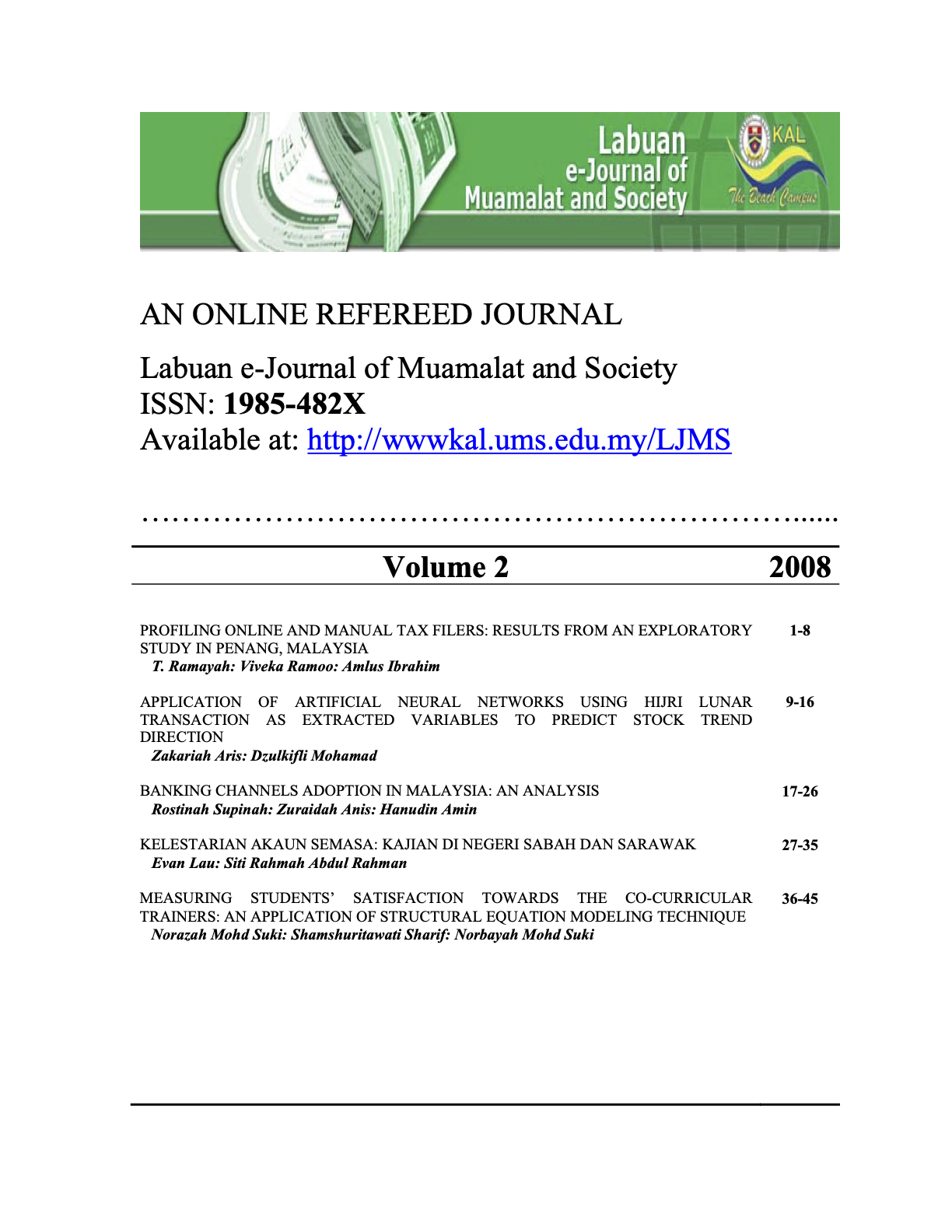APPLICATION OF ARTIFICIAL NEURAL NETWORKS USING HIJRI LUNAR TRANSACTION AS EXTRACTED VARIABLES TO PREDICT STOCK TREND DIRECTION
DOI:
https://doi.org/10.51200/ljms.vi.2971Keywords:
Artificial neural networks, prediction, stock market index directionAbstract
There have been many studies using artificial neural networks (ANNs) in the stock market prediction. A large number of successful applications have shown that ANN can be a very useful tool for time-series modeling and forecasting (Zhang et al., 1998). There has been no specific research for stock market trend direction using the dates transaction attributes as the input variables. The aim of this paper is to use artificial neural networks to predict Kuala Lumpur Composite Index (KLCI) market index trend direction. Preliminary research performed on Malaysia stock market has suggested that the inputs to the system may be taken as: stock prices; Open, High, Low, Close, and 5 dummy variables each representing the working days of the week, month, day, numerology number representing the transaction, and day sequence of the month. After the inputs have been determined, the data have been gathered for the period of July 1, 2001 through February 28, 2003 downloaded from the Finance. yahoo database. Training set is
determined to include about 90% of the data set and the rest 10% will be used for testing purposes. Network architecture is determined to be Multi Layer Perceptron and Generalized Feed Forward networks. Training and testing is performed using these two network architectures. However, subsystems are considered, which had different number of hidden layers (1, 2 and 4) for a mean-squared error value of 0.003. The results are then
compared with the results of moving averages for 5 and 10-day periods, which showed that artificial neural networks have better performances than moving averages.











